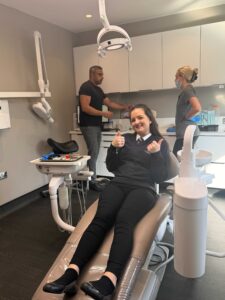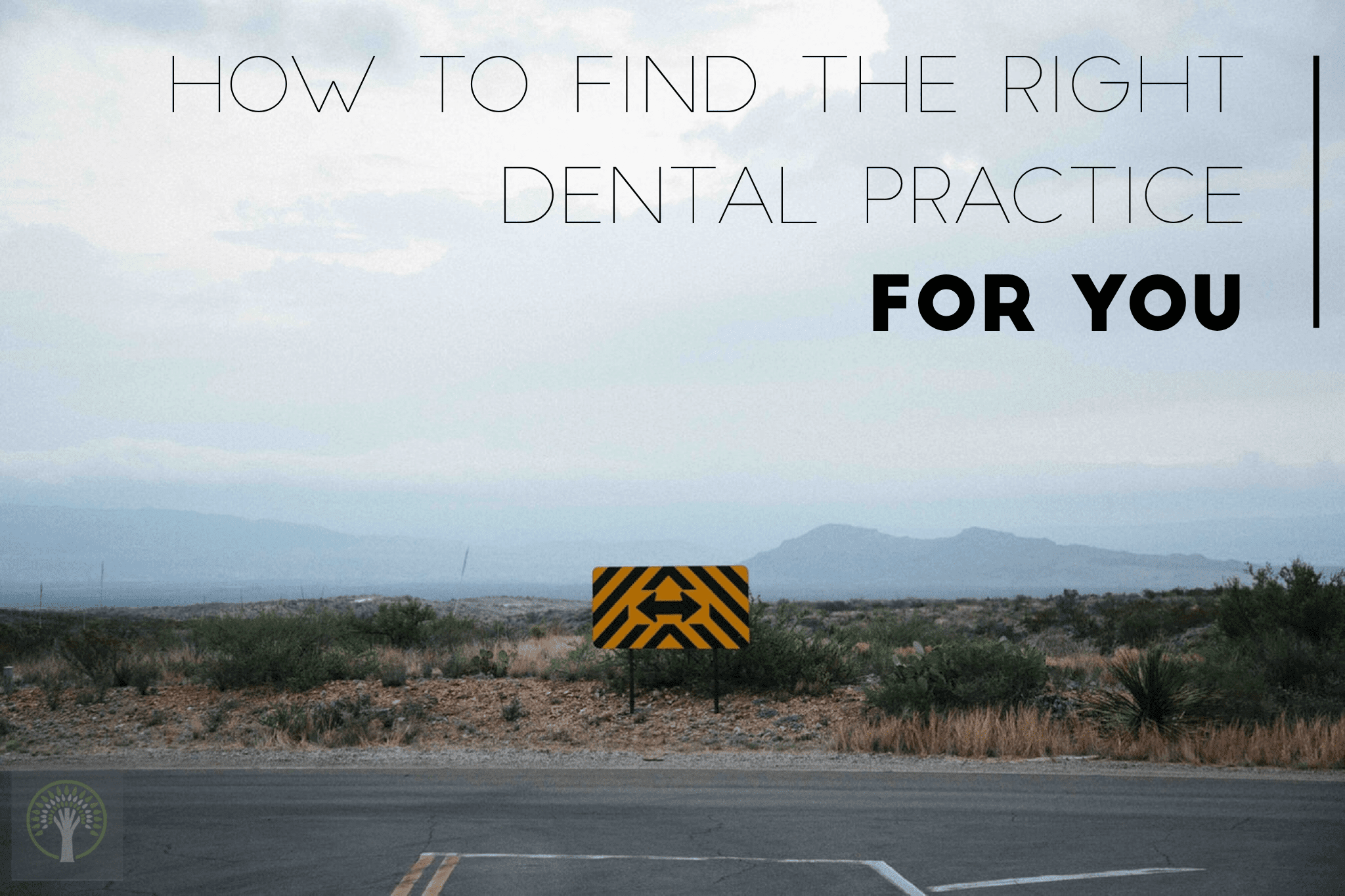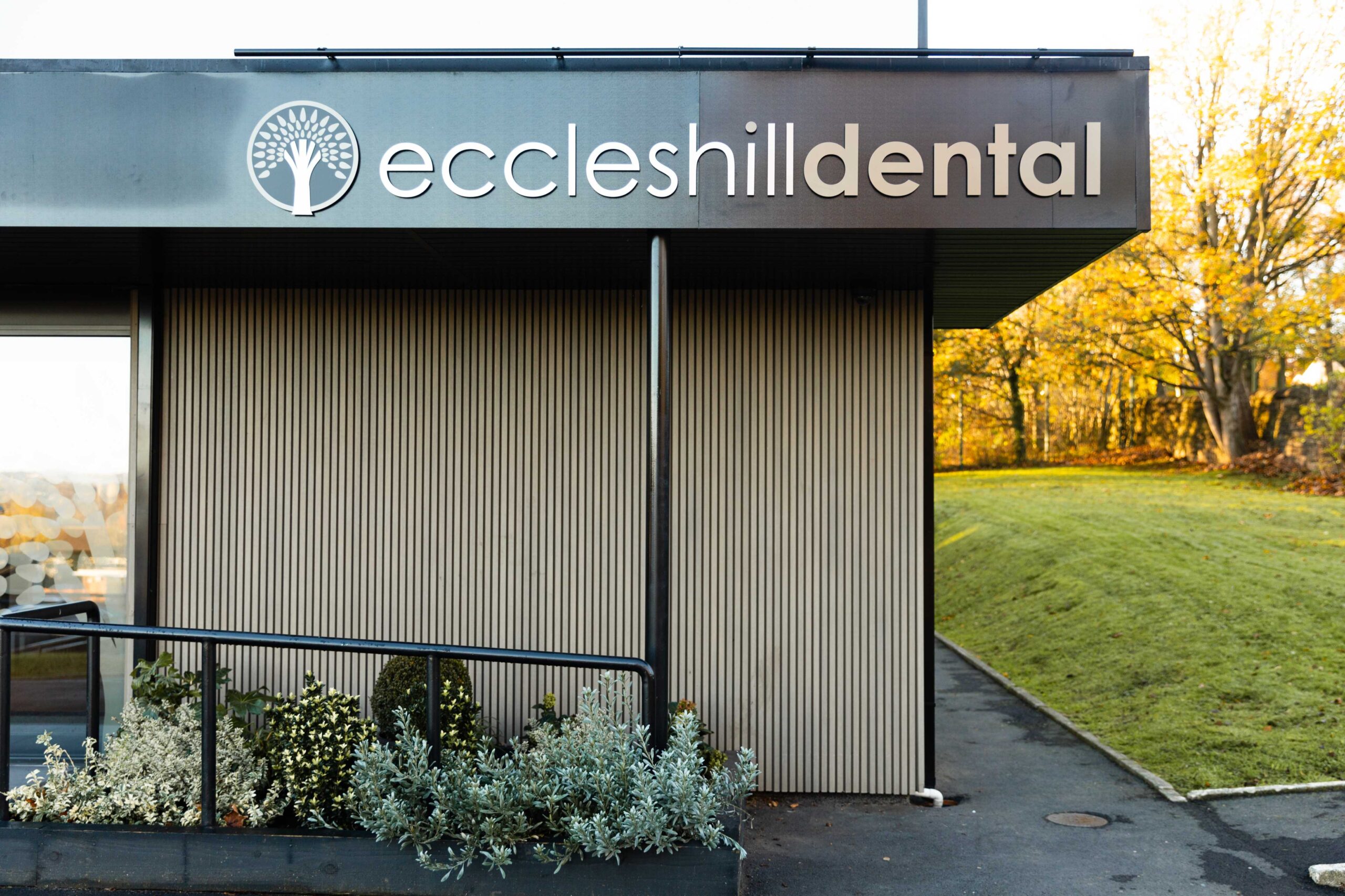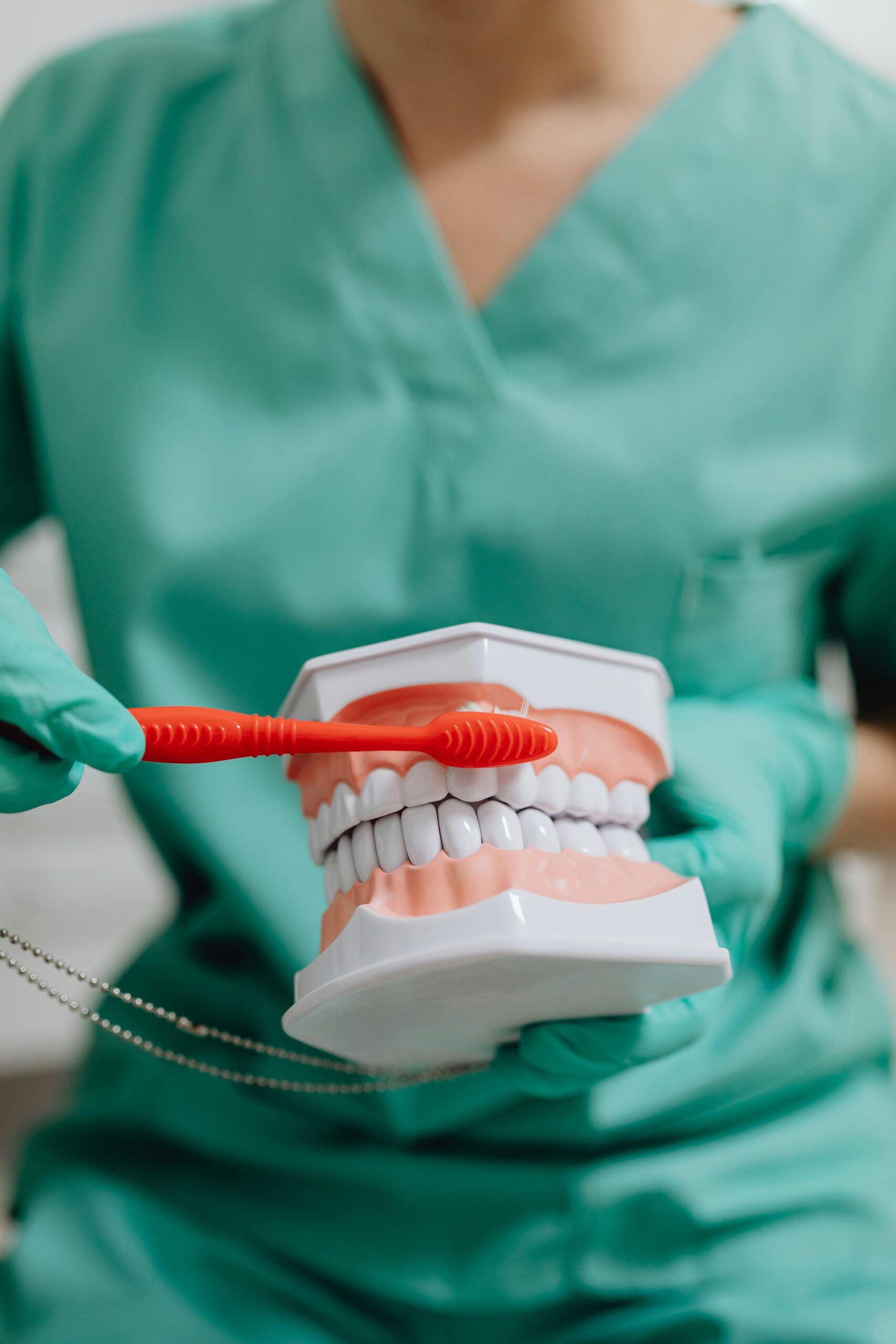Table Of Contents 1 1. Your Gums Bleed with Gentle Flossing or Brushing 2 2. Persistent Bad Breath That Doesn’t Agree with Mouthwash 3 3. Teeth Feel
12 Subtle Signs You’re Overdue for a Dental Checkup
You might think, “If there’s no pain, everything’s fine,” but your mouth can whisper warnings long before pain screams. Skipping regular dental checkups is one of the easiest ways to let minor issues grow into major ones. Below are twelve subtle signs your teeth (and gums) may be quietly signaling: it’s time for a dental checkup.
Even if you live in Bradford or are searching for a “dental checkup near me,” these signs apply. This post aims to help you catch problems early and get you back into the dentist’s chair before things worsen.
1. Your Gums Bleed with Gentle Flossing or Brushing
Bleeding gums doesn’t always mean you are doing something aggressively wrong. Often, they’re the first hint of gingivitis — the mild, reversible form of gum disease. If flossing or brushing gently (not aggressively) causes your gums to bleed on a regular basis, that’s your mouth asking for a professional exam and deep cleaning.
Why this matters: untreated gum disease may progress and threaten underlying bone and overall oral health.
2. Persistent Bad Breath That Doesn’t Agree with Mouthwash
We all get occasional bad breath, especially after garlic or onions. But when foul odor lingers, even after brushing, flossing, and rinsing, it could suggest bacterial buildup below the gum line, decayed areas, or hidden pockets of infection.
If “minty gum + strong mouthwash” still doesn’t mask persistent bad breath, it’s a red flag to schedule a dental checkup near me.
3. Teeth Feel Slightly Rough or Gritty Later in the Day
Your teeth should feel relatively smooth when you run your tongue over them. If you start noticing rough spots, uneven texture, or gritty residue even after brushing, plaque may have hardened into tartar (calculus).
Tartar is stubborn and can’t be removed by brushing alone. Only a professional cleaning during a dental checkup can safely remove it.
4. You Spot Faint Discoloration or Pale Spots
Sometimes early decay doesn’t hurt, it shows subtly. Tiny white spots, faint grayish patches, or slightly yellowed edges could all hint at demineralization or enamel wearing. These are early signals that some action is required, before cavities deepen.
A dental checkup helps your dentist detect and possibly reverse early decay before a full cavity develops.
5. Teeth Start Sensitivity to Hot, Cold or Sweets
A little “zing” when sipping hot coffee or biting into ice cream now and then isn’t unusual. But when sensitivity becomes more frequent and bothersome, even for mild temperature changes — that’s a sign the protective enamel is thinning or gums are receding.
Even though discomfort may come and go, it’s a subtle warning. In a checkup, your dentist can assess the cause — be it enamel erosion, exposed dentin, or cracks and suggest protective treatments.
Also Read: Top 9 Tips for Brushing Your Child’s Teeth the Right Way
6. You’ve Gone More Than Six Months (or Longer) Since Last Visit
Sometimes the biggest “sign” is simply neglect. The standard recommendation of a dental checkup every six months is not arbitrary — it balances prevention, monitoring, and cost.
If you realize it’s been a year (or more) since your last professional cleaning and exam, that alone is enough reason to get back on schedule.
7. Minor Jaw or Mouth Discomfort That Comes & Goes
You may notice a slight sensation of pain around your jaw, a bit of clicking when you open your mouth, slight achiness near a tooth once in a while, or have a feeling of “tightness” when you chew. While you may brush it aside as exhaustion or stress, these may be early signals of TMJ strain, grinding (bruxism), or bite misalignment.
A dental checkup gives your dentist a chance to evaluate your bite, muscle tension, and joint health before the issue escalates.
8. Slight Shifting or Looseness in Teeth
Maybe you have noticed that a tooth “feels different” just slightly loose, or that its neighbors feel a bit closer (or farther) than before. Changes often occur so gradually you don’t see them daily.
Such movement can stem from bone loss, periodontal disease, or trauma. Scheduling a dental checkup Bradford (if you are local) can help catch early bone or gum issues and preserve stability.
9. You Find Tiny Cracks or Chips
You don’t need to wait for a dramatic break. Tiny hairline cracks, fine lines, or micro-chipping on enamel are subtle structural signs that your teeth are under stress.
Such cracks can harbor bacteria, worsen over time, or lead to further fractures. Your dentist can spot them via examination or x-rays before they become bigger problems.
10. You Notice More Plaque or Stains Than Usual
If you notice more yellowing, or a higher buildup of deposits than before, the environment in your mouth is changing. For example, your saliva flow may have decreased, your diet changed, or your oral hygiene of brushing and/or flossing may have decreased in effectiveness.
You can completely reset your clean state with a professional scale and polish at your dental checkup, and your dentist can help advise you on making adjustments to your home routine.
11. Dry Mouth, Burning Sensation, or Unusual Taste
Chronic dry mouth (xerostomia) reduces saliva’s natural cleansing effect, leaving teeth vulnerable. You might also experience a burning tongue sensation, metallic taste, or odd mouth dryness.
These can arise from medications, systemic conditions, or dehydration but they also heighten risk for decay, infections, and gum disease. A dental checkup helps uncover underlying causes and protective strategies (e.g. fluoride gels, habit changes).
12. You Often “Forget” Toothaches or Carry Minor Discomfort
Maybe your tooth “feels off” sometimes but not enough to make you pick up the phone. Or you have learned to live with a minor ache, pinching or twinge. That’s dangerous — what starts as a whisper may become a roar (root canal, abscess).
If you find yourself ignoring small sensitivities, or telling yourself “It’ll go away,” that’s a sign: you’re overdue. Don’t wait for a bad flare-up.
Also Read: How Often Should You Really Get a Dental Checkup? Here’s What Dentists Recommend
Why Being “Overdue” Is Riskier Than You Think
Being overdue for a dental checkup is more than just neglecting your teeth. It invites:
- Progression of decay: what started as faint demineralization can escalate into deep cavities or root problems.
- Gum disease advancing: gingivitis can become periodontitis, causing bone loss, receding gums, and loose teeth.
- Higher cost and complexity: early detection often means simpler, more affordable treatments.
- Systemic health implications: oral infections influence heart health, diabetes, and more.
- Comfort and quality of life issues: chewing becomes harder, sensitivity grows, and infections can cause swelling, pain, or abscess.
That’s why these subtle clues matter — because they give you a head start.
What to Expect in a Dental Checkup (So You Don’t Sweat the Unknown)
If it’s been a while, here’s what typically happens, so you know what to expect and approach your appointment with confidence:
- History and Conversation
The dentist/hygienist will review your medical/dental history, medications, habits (smoking, grinding), and any concerns you may have. - Visual and Tactile Exam
They’ll take a look at your teeth, gums, tongue, cheeks, palace, and joints, searching for signs of inflammation, lesions, mobility, cracks, and abnormalities. - X‑rays or Imaging (If Needed)
To check for hidden decay, bone levels, root structures, and inter-proximal problems. - Periodontal (Gum) Assessment
Symptoms of periodontal disease will be assessed by measuring gum pocket depths. - Cleaning / Scale & Polish
Removal of plaque, tartar (even below the gumline), polishing to smooth surfaces, and possibly fluoride treatment to strengthen enamel. - Discussion & Plan
Based on findings, the dentist discusses your oral health status, treatment needs (if any), and preventive advice tailored to you. - Preventive Advice & Follow-Up
Suggestions may include improved home-care techniques, diet tweaks, fluoride products, night guards (if grinding), or scheduling the next checkup.
Know more: How Diet Affects Your Child’s Teeth: Foods to Embrace and Avoid
Tips to Stay on Track After Your Checkup
- Set your next appointment right away. Don’t wait — book it before you leave the clinic.
- Use reminders or calendar alerts. Six months can pass quickly.
- Share the “why” with family or friends. Evangelize the value of preventive visits.
- Track your own subtle symptoms. Keep a journal (gum bleeding, sensitivity, etc.).
- Maintain good habits at home. Brush twice daily with fluoride toothpaste, floss daily, reduce sugary foods/drinks, and avoid tobacco.
For Residents Searching “Dental Checkup Near Me” or in Bradford
If you are in or near Bradford and searching “dental checkup Bradford” or “dental checkup near me,” now you know exactly what to look for: a clinic that doesn’t just clean and fix, but watches for the subtle whispers your mouth makes. Choose a dentist who treats prevention as seriously as treatments.
Final Thoughts
Your mouth doesn’t always shout when it’s in trouble. Often, it leaves soft clues — bleeding gums, sensitivity, slight roughness — waiting for you to pay attention. Recognizing those 12 subtle signs is your first line of defense.
Don’t wait for pain to force your hand. Be proactive. If you relate to even a few of the signs above, it’s time to book that dental checkup near you.
Ecceshill Dental is committed to helping patients catch issues early, maintain healthy smiles, and ensure that visiting the dentist isn’t a source of anxiety but a source of confidence.
Call us today or book your appointment — let us help keep your smile strong and problem-free.








